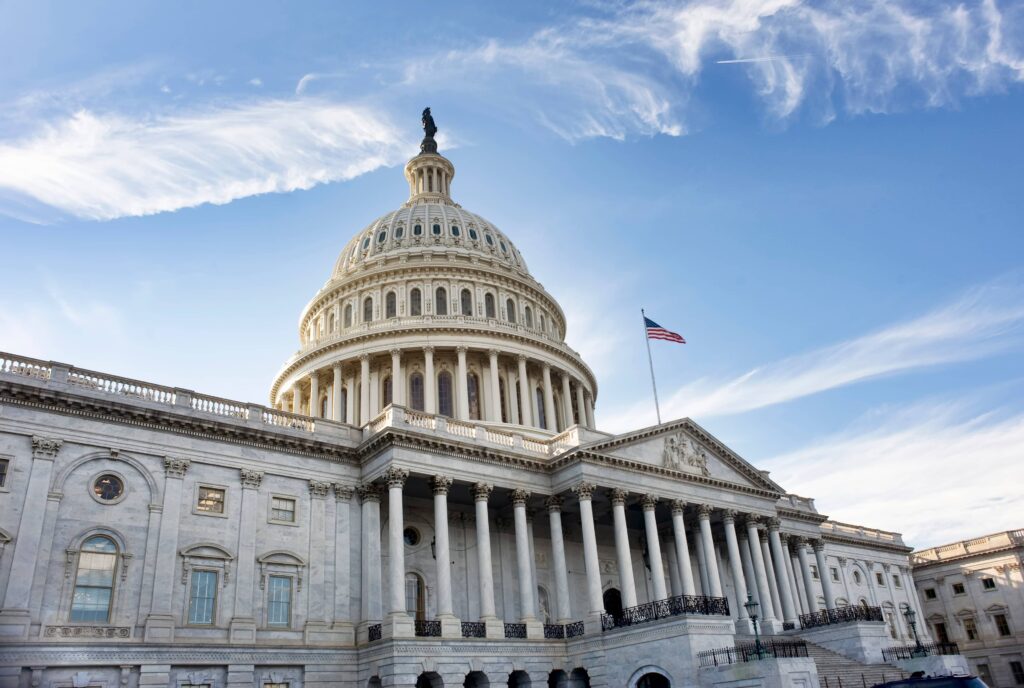
The U.S. House of Representatives remains in a historic deadlock over who should be the next speaker. Rep. Kevin McCarthy, a Republican of California, has failed to win enough support from his GOP colleagues after eight votes over three days. The dispute has made the chamber essentially useless, with lawmakers unable to get on with the business of governing.
To break down the political battle, we turn to Jeffery A. Jenkins, provost professor of Public Policy, Political Science and Law for the USC Sol Price School of Public Policy. Jenkins literally wrote the book on contested speakership elections, co-authoring Fighting for the Speakership: The House and the Rise of Party Government. He was recently featured on KCRW’s Press Play with Madeleine Brand and has been blogging about the political stalemate.

What does history tell us (or not tell us) about where the current speakership dispute is headed? How is this stalemate similar or different to previous contentious elections for speaker?
The 2023 speakership election is historically very unusual. This is the first time in 100 years a speakership election has gone beyond one ballot, and only the second time since 1859.
If we look back to the four more recent occasions in which a speakership election has gone beyond one ballot—in 1849, in 1855-56, in 1859-60, and in 1923—we see that more than two coalitions were dug in over a candidate that fit their interests.
This is true today, with establishment Republicans unified behind Kevin McCarthy (CA), 20 Republicans scattering their votes, and Democrats unified behind Hakeem Jeffries (NY).
In 1849 and 1855-56, there were clear regional dynamics in play and slavery was a wedge issue between and within the major parties. In 1923, a pivotal group of progressive Republicans wanted a greater say in policy decisions—and by extension, the rules, procedures, and committees that would allow them to fight for policy on the House floor.
In 2023, there have been some disputes over procedures and the ability to get policy concerns voted on. But McCarthy has bent over backwards to appease the 20 Republican dissenters on these issues and they still have rejected him.
Today, much more than in the past, the speakership battle within the Republican Party is more than ideological or policy-based: it is personal. The 20 Republican dissenters extract a lot of currency with their constituents and donors by thumbing their nose at the Republican establishment.

How do you think this stalemate comes to an end? What are some scenarios that could play out?
I think the Republicans will eventually move away from McCarthy as their speakership candidate. It may take a while yet. They are concerned if they give up McCarthy, they’ll lose any credibility whatsoever in the House after that. But, assuming they eventually come that conclusion, the obvious choices are Steve Scalise (LA), the second in command in the House, and Elise Stefaniak (NY), the third highest leader.
Alternatively, the Republicans could try to change the rules. They could propose a secret ballot – which was used by the House to elect its leaders prior to 1839 – or a plurality rule, which would elect the highest vote-getter in the speakership election. Each of those scenarios would require a majority vote. But each is risky, and it’s not at all clear the Republicans could elect a Speaker under those scenarios.
What does this speaker election say about the state of American politics? Does it foreshadow what the next two years could look like in Congress?
This speakership is the culmination of partisan politics that took a real turn beginning in 2010. Polarization has been on the rise since the late-1970s, but after Barack Obama’s election in 2008, an acceleration occurred. The Tea Party movement targeted sitting government as corrupt and out-of-touch with “real” Americans. The House Freedom Caucus emerged not long after that, and this group of 30-40 members has made life very difficult for Republican House leaders. Speaker John Boehner retired rather than have to battle with them over a motion to vacate the speakership.
So, even if the Republicans figure out the speakership election, the next two years of House politics will be very difficult for any Republican speaker. He or she will have a very difficult time getting the Republican majority to take any meaningful action. And there will be key votes—like raising the debt limit later in 2023—that might fail, because of the defection of Republican members who have to this point been opposing McCarthy.
If the Republicans figure this out, will it be easier or harder to do this kind of thing (i.e., hold up the speakership vote and stymie a majority) in the future?
We’re moving down a road that has no recent precedent.
It used to be that voting against your party’s speakership candidate was one of the worst things you could do (along with not supporting your party’s presidential candidate). If you tried it, you’d get punished. All the Republican progressives who defected in 1923 were punished in 1925 by having their committee seniority and assignments stripped. Those punishments don’t exist anymore.
The members of the House Freedom Caucus can raise their own money now – they don’t rely on the party for that. And their goal is to “message” about the excesses of the Democrats and the weakness of the Republican establishment – and their constituents love it. So the old ways of party governing in the House are gone.